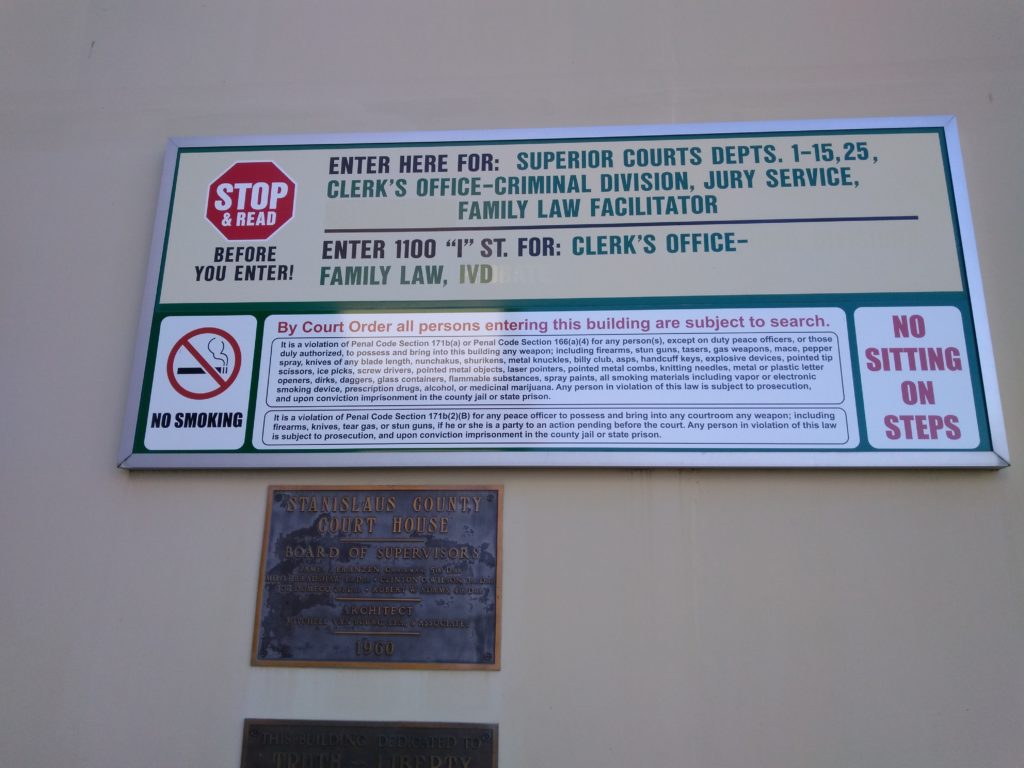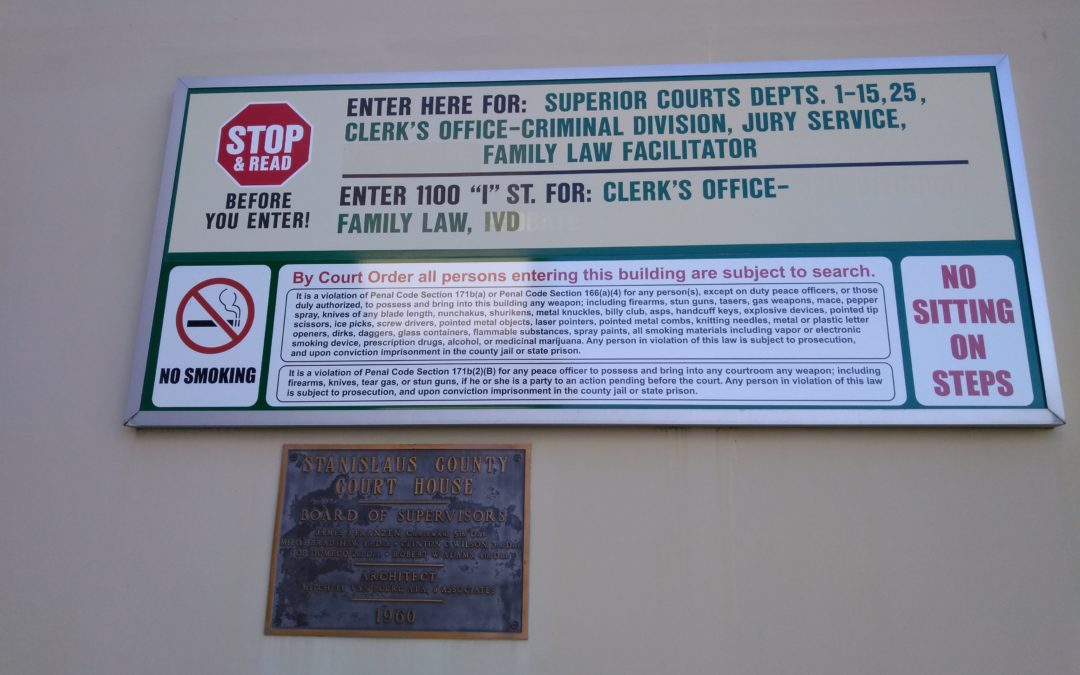I would have thought it common sense that you shouldn’t bring a weapon to court unless you’re a law enforcement officer, using the weapon as evidence in a case, etc. However, in case it isn’t common sense, there’s this sign at the entrance to the Criminal and Family courthouse in Modesto, California.

If you look under the red wording that says “By Court Order, all persons entering this building are subject to search”, you’ll see that it’s a crime to bring any of a whole littany of weapons in to the courthouse, including but not limited to, firearms, stun guns, tasers, gas weapons, and mace.
The statutory authority for that is California Penal Code section 171b which, in a nutshell, outlaws the bringing and possessing of weapons in to a state or local public building. Section 171b also lists out a whole bunch of exceptions to this prohibition, such as law enforcement officers, people using the weapon as evidence in a case, and people who have been specifically granted permission to bring the weapon in.
The prohibition does, however, remain in effect (i.e. it’s an exception to the exception to the prohibition) as to those persons who are parties to a case. For instance, a law enforcement officer can carry their firearm if they are on-duty (e.g. a sheriff’s deputy working as a baliff at the courthouse), but if they are showing up for a child custody hearing in their own divorce, then they can’t.
You can read over the entirety of Section 171b at your leisure, but I want to point out the section’s definition of a “state or local public building”. As when reading any statute, it’s important to make the threshold inquiries (e.g. what situations are covered by this statute, who is eligible for relief under this statute, etc.) at the outset.
Section 171b(c) defines “state or local public building” in all of the following ways:
- A building that is owned or leased by a state or local government, if state or local government employees are present in the building carrying out their official duties. A courthouse would fit under this definition, **AND**
- It is not a building or facility, or a part thereof, that is referred to in Section 171c, 171d, 626.9, 626.95, or 626.10 of this code, or in Section 18544 of the Elections Code, **AND**
- It is not regularly used and not intended to be used by state or local employees as a place of residence.
That second bullet defines “state or local public building” in terms of what it isn’t (e.g. not a building referred to under CA Penal Code 171c, etc). To help make sense of that negative definition, I’m going to indicate the buildings they mention. You’ll need to read the full text of each statute to gauge the full scope of what the statute includes.
- CA Penal Code section 171c: This refers to the California State Capitol, any California legislative office, the office of the California Governor, etc. If I had to categorize this, Section 171c seems to cover places related to the legislative branch of government in California.
- CA Penal Code section 171d: This section refers to the residence of the California Governor or the residence of any California state legislator.
- CA Penal Code section 626.9: This section refers to schools (both public and private) as well as 1,000 foot regions surrounding schools.
- CA Penal Code section 626.95: This section refers to playgrounds and youth centers. Like Section 626.9 above, section 626.95 is meant to protect children.
- CA Penal Code section 626.10: This section also refers to schools (both public and private), but it doesn’t mention the 1,000 foot school zones mentioned in Section 626.9.
- CA Elections Code section 18544: This section refers to polling places.
Anyway, I hope this post was helpful or, if not, at least interesting to read. If you have a situation involving what I talked about in this post, please do read the statutes and other authority I link to above. What I mention above is just my paraphrase of those statutes and authorities so don’t take it as gospel. Best of luck.
Andy Chen
Latest posts by Andy Chen (see all)
- Part 1: California Limited Liability Companies (LLC) – suffixes - June 29, 2025
- California Powers of Attorney – Agent as Witness? - December 6, 2024
- The 3-List Approach to Preparing a First-Time Estate Plan - December 4, 2024

